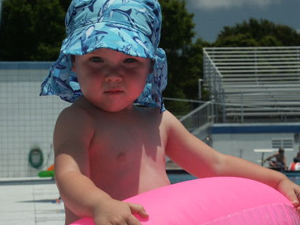Balancing Extremes in Motherhood Advice
 When I was in my late teens/early twenties, my friends and I used to talk about what our live would be like when we got married and had kids. A couple of my friends swore that they would not let parenthood change their lifestyles at all. I remember thinking this was a little naïve, but a good ideal to strive for. Through the years I have heard similar sentiments from people, mostly in older generations, who think that a hands-off approach to parenting is best, and that kids should just “come along for the ride” on their parents’ journeys.
When I was in my late teens/early twenties, my friends and I used to talk about what our live would be like when we got married and had kids. A couple of my friends swore that they would not let parenthood change their lifestyles at all. I remember thinking this was a little naïve, but a good ideal to strive for. Through the years I have heard similar sentiments from people, mostly in older generations, who think that a hands-off approach to parenting is best, and that kids should just “come along for the ride” on their parents’ journeys.About 5 minutes after I became a mother, I saw that it definitely was naïve to think that parenthood could occur without any lifestyle changes. Being responsible for a defenseless and completely dependent little person is going to bring about changes. With one child, it is probably possible to maintain a good degree of similarity to the pre-baby lifestyle, with some modifications. With a large family, I can’t imagine how life B.C. (before children) could have much resemblance to family life.
I think this push for a hands-off approach is a reaction to the helicopter-mom phenomenon. Some people feel that mothers today tend to be more involved. They tend to play with their kids more, get more involved in their education, implement more safety measures, etc. There is another school of thought that contemporary mothers don’t supervise their kids enough when it comes to morals, and spend more time on their careers than with their children. There’s probably some truth in both these camps, and as always, the key is finding the balance between the two extremes.
Some time in the past year, I read in a parenting column that mothers should only play with their kids for some arbitrary amount of time/day, maybe 90 minutes (I can’t remember the exact figure, but it definitely seemed arbitrary). The point the author was trying to make is that it’s not a mother’s job to be the entertainment committee and that mothers shouldn’t feel guilty if they don’t enjoy all or even most of the activities as their children. On one level, this makes sense to me. A 30 year old isn’t going to find the same amount of excitement in the type of game that interests a toddler. And children aren’t going to learn to entertain themselves if they never play alone.
On the other hand, moms and children need to have a playful element to their relationship. Mothers should be able to find some activities that they enjoy engaging in with their children, even if it’s a question of letting the kids join in with mom’s activities (cooking, etc) rather than mom joining the kids. But even so, mothers are going to need to provide some guidance when their kids play, a least just giving them occasional feedback, showing them how to use certain materials, etc. For some households, this might only amount to 90 minutes/day, for others it might be more time. A lot of it will depend on the number of children in the family. As long as the parent and child are enjoying each other, and as long as the child has opportunities to play independently, I would never limit myself to someone else’s number.
When it comes to safety, there is certainly nothing wrong with taking the latest information and applying it reasonably to keep our kids safer. When we start crossing the line into limiting their activities and making them and ourselves nervous wrecks, then it’s time to step back and hover less. I’ve heard the accusation that parents today are too concerned about their kid’s physical safety and not concerned enough about their moral safety. Personally, I don’t think the two have to be mutually exclusive.
Again, I think much of this is a reaction to contemporary helicopter-moms. There is a school of thought that kids today are being raised to think that they’re the center of the universe, and that the remedy for this is to go about our business and make them conform to our lifestyle. I generally find these types of reactionary perspectives to be too extreme. I don’t think there’s anything wrong with letting our children know that they are very important to us, and that their individual needs and preferences deserve some consideration. When we move toward letting our kids disregard the needs of others, then we’ve gone too far. It is always about balance, and the way to achieve that is going to vary from family to family. But it is definitely something to strive for.

